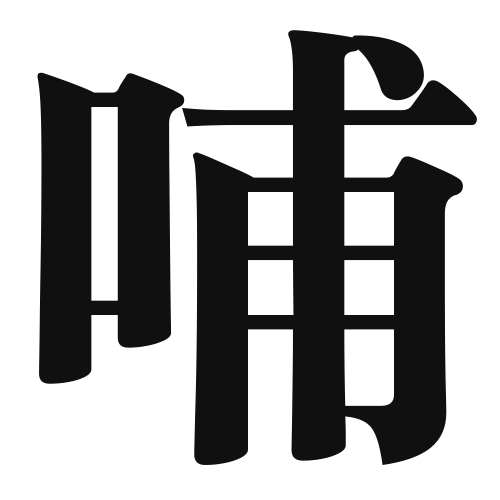1. Overview of Meaning
The kanji “哺” (pronounced “ho”) primarily means “to suckle” or “to feed.” It is often associated with nurturing and providing sustenance, particularly in the context of animals and infants.
2. Formation and Radical
Formation of the Kanji: The kanji “哺” is a phonetic-ideographic character (形声文字). It combines the radical for “mouth” (口) with a phonetic component that suggests its pronunciation.
Radical: The radical of “哺” is 口, which relates to actions involving the mouth, such as speaking or eating.
3. Examples of Usage
Common Words and Phrases: Some common words that include “哺” are “哺乳” (honnyū – lactation) and “哺乳類” (honyūrui – mammals).
Example Sentences in Daily Conversation:
- 赤ちゃんは母親から哺乳されて育ちます。 (The baby is raised by being suckled by the mother.)
- 哺乳類はすべて母乳で育てられます。 (All mammals are raised on milk.)
4. Synonyms and Antonyms
Similar Kanji: A similar kanji is “養” (yō), which means “to nurture” or “to raise,” but it has a broader meaning that includes education and care beyond just feeding.
Antonyms: An antonym could be “捨てる” (suteru), which means “to abandon” or “to discard,” representing the opposite of nurturing and caring.
5. Cultural and Historical Background
Relation to Japanese Culture: The concept of “哺” is deeply rooted in Japanese culture, where nurturing and caring for children and animals is highly valued.
Proverbs and Idioms: One relevant proverb is “親の心子知らず” (Oya no kokoro ko shirazu), which translates to “A child’s heart does not know a parent’s heart,” emphasizing the nurturing aspect of parenthood.
